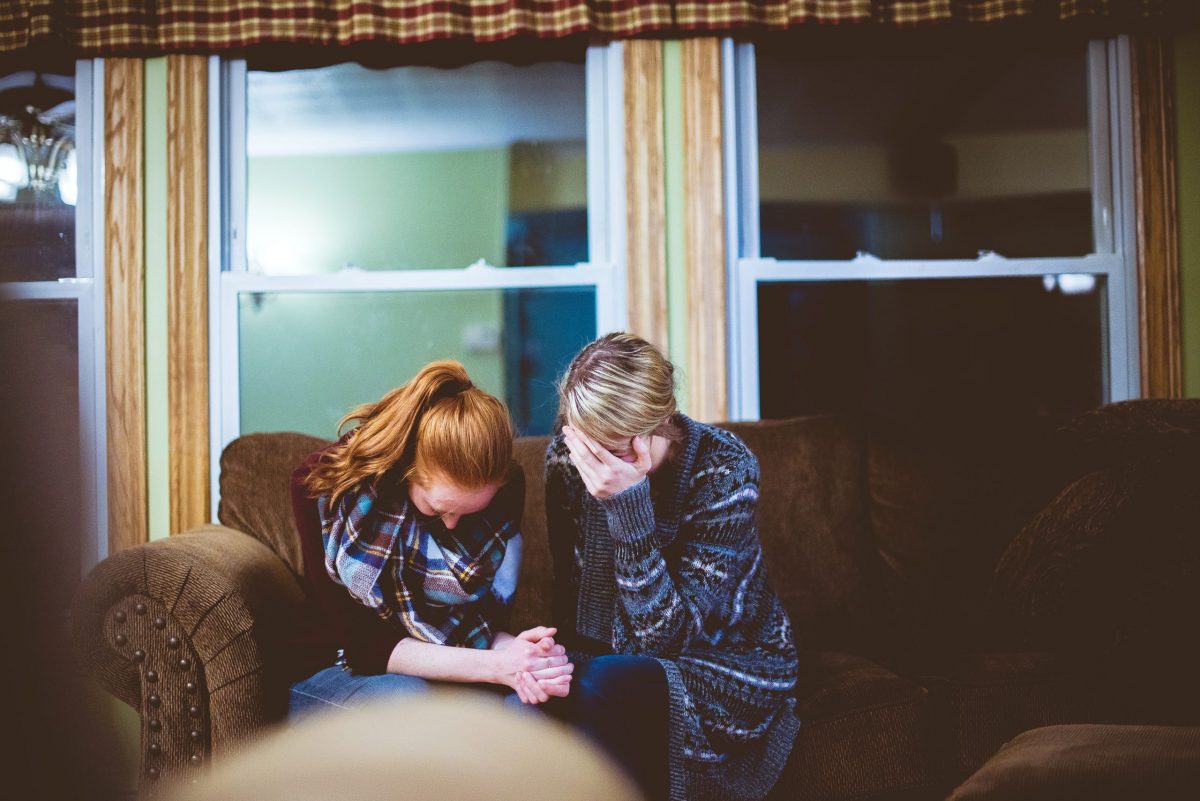Picture this. You are hanging out with a friend, and there is an uncomfortable silence. Your brain starts racing with things to say to fill the void. Then it happens. You say something insensitive out loud. You may instantly realize you screwed up, and regret your careless words. Or worse, you may be totally oblivious to the fact you said something insensitive, but you notice a sudden change in your friend’s expression and body language and think, “Uh, oh, what did I just say?”
In a perfect world, you would never say anything insensitive to hurt your friend’s feelings, but in reality, when there is an awkward situation where people don’t know what to say, they often say dumb stuff.
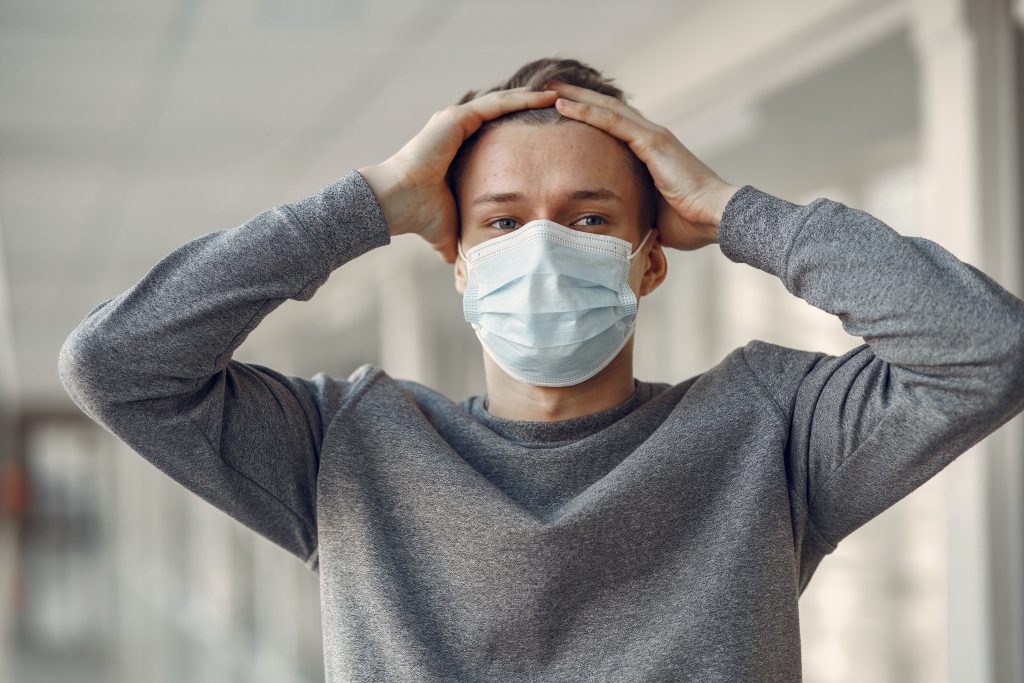
Where Did I Go Wrong?
In cancer conversations, comments intended to express empathy or comfort can backfire when they are dismissive of the person’s situation, choices, decisions, or emotions. We designed our Talking Tips to help supporters avoid these pitfalls. Our Talking Tips compare unhelpful comments that, believe it or not, have actually been said to a someone with cancer with an improved and more mindful way of phrasing the sentiment.
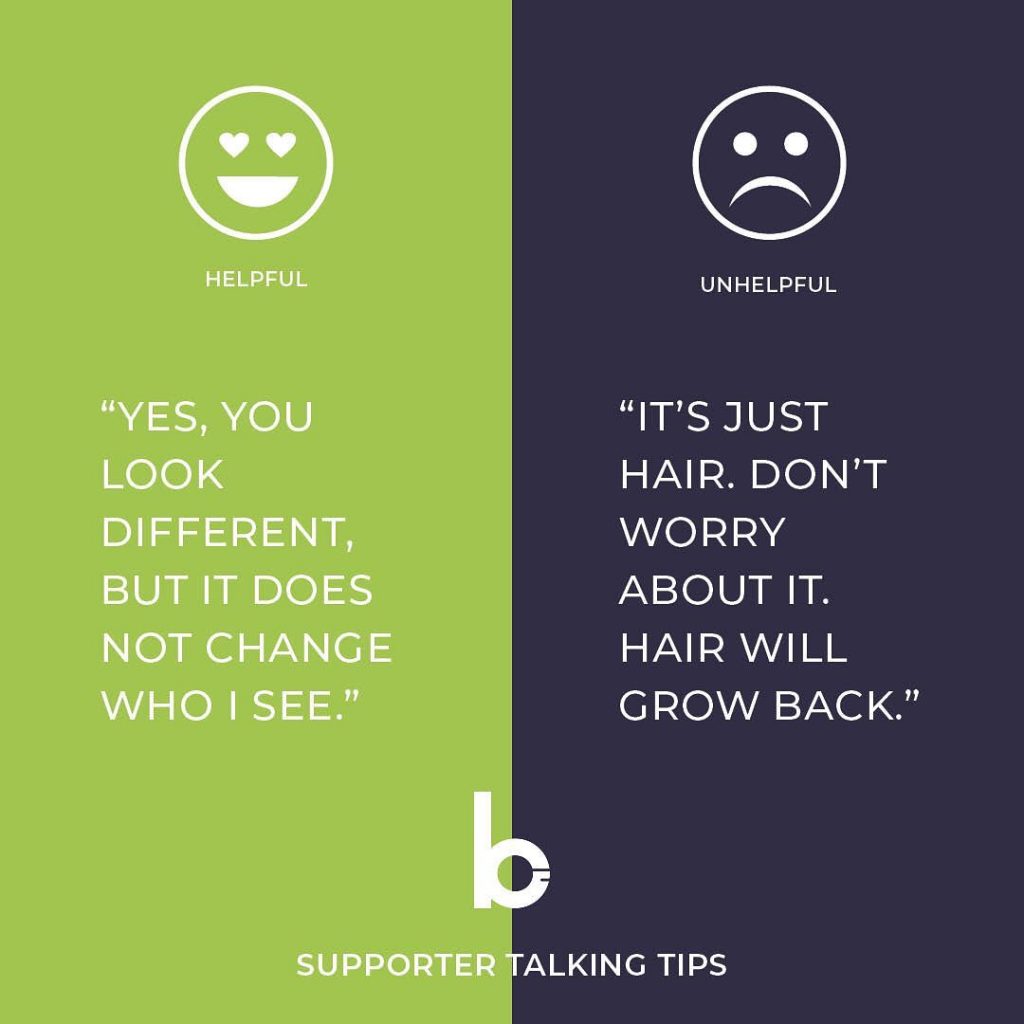
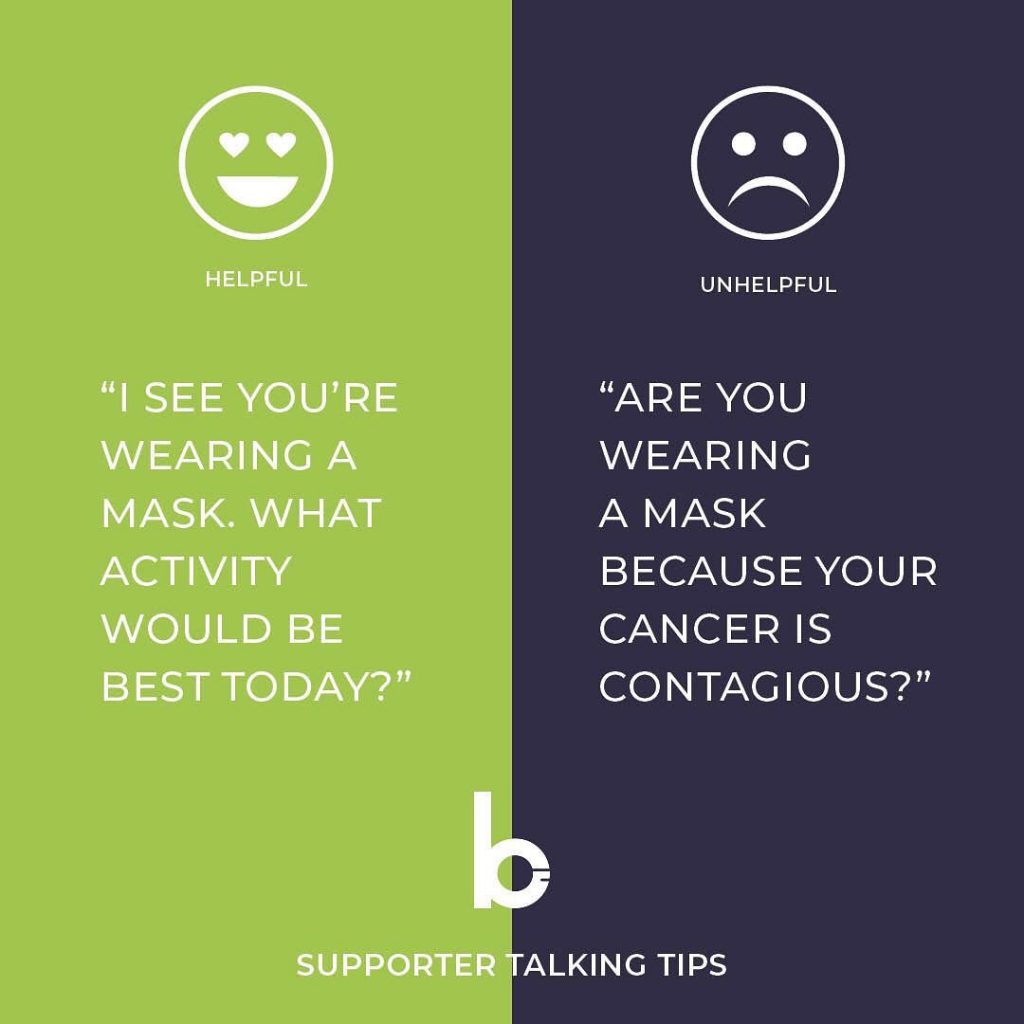
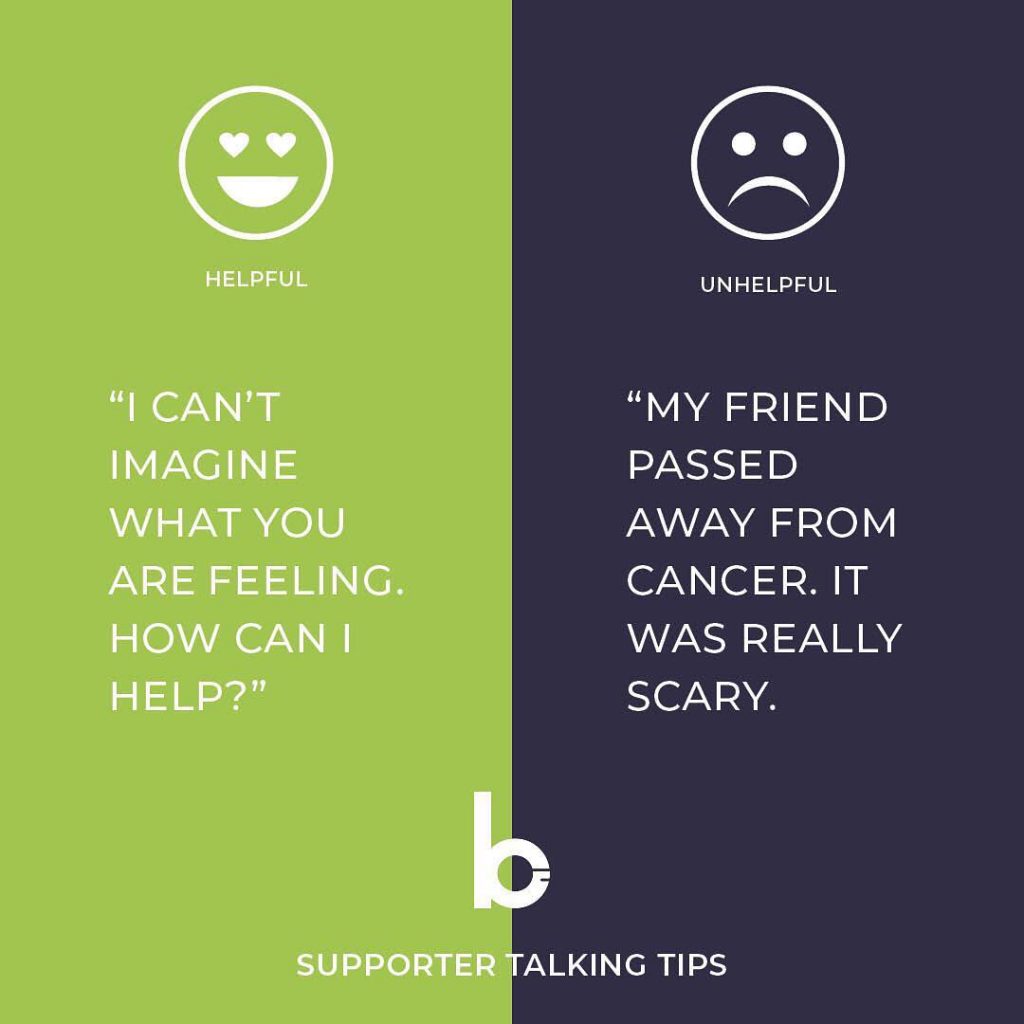
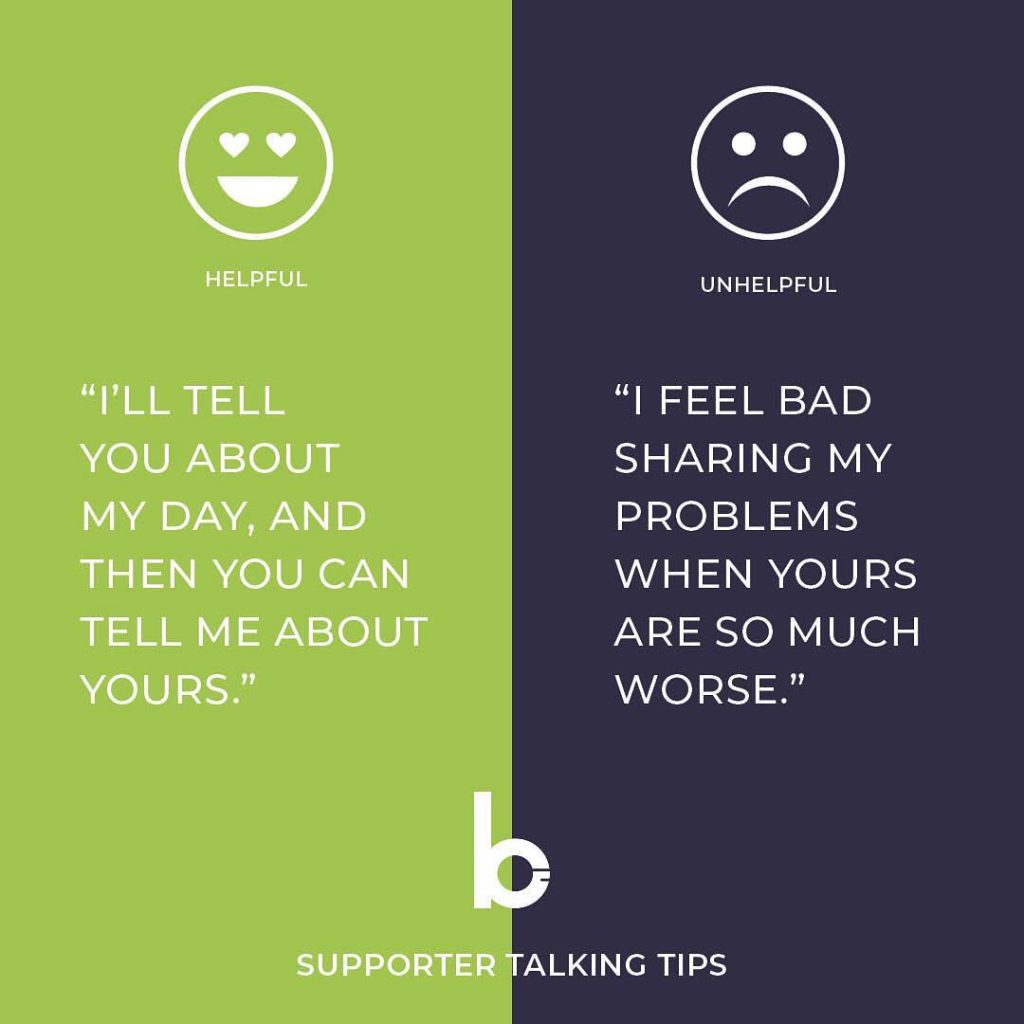
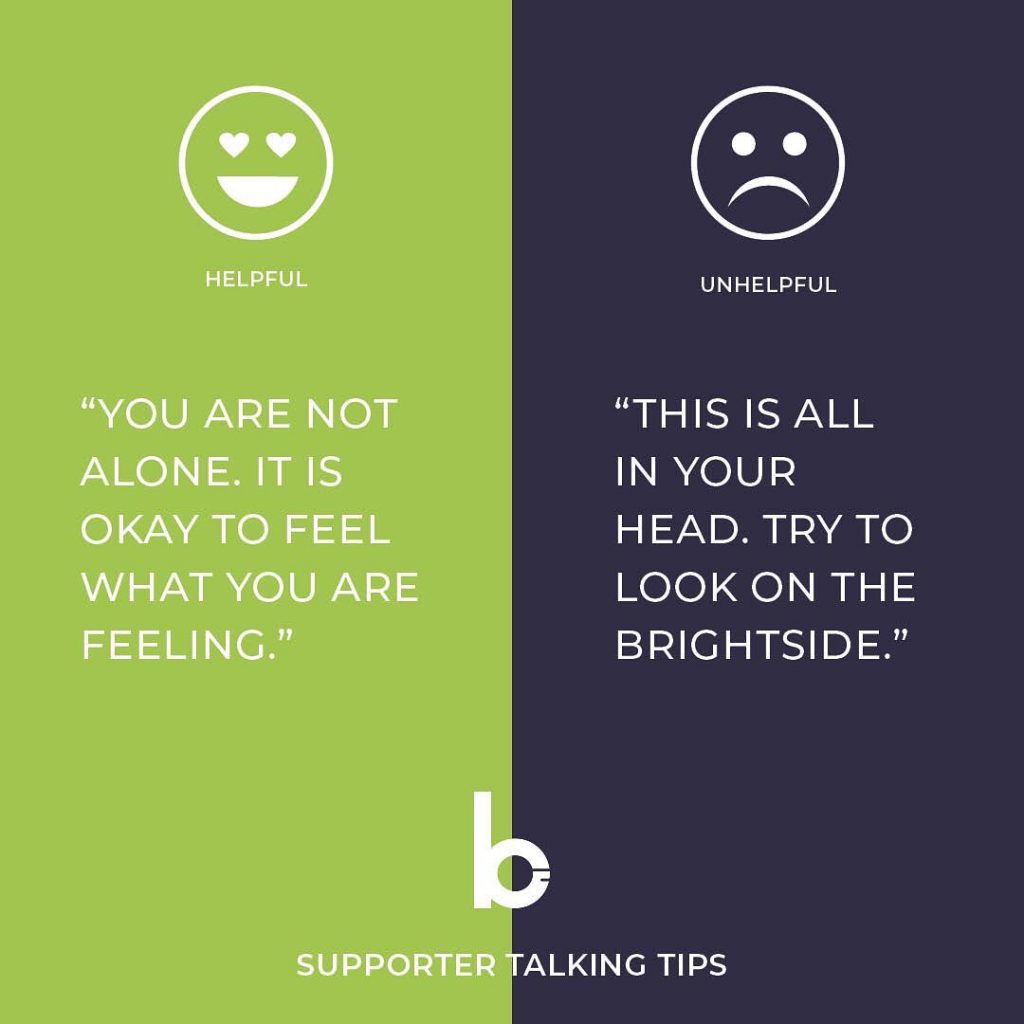
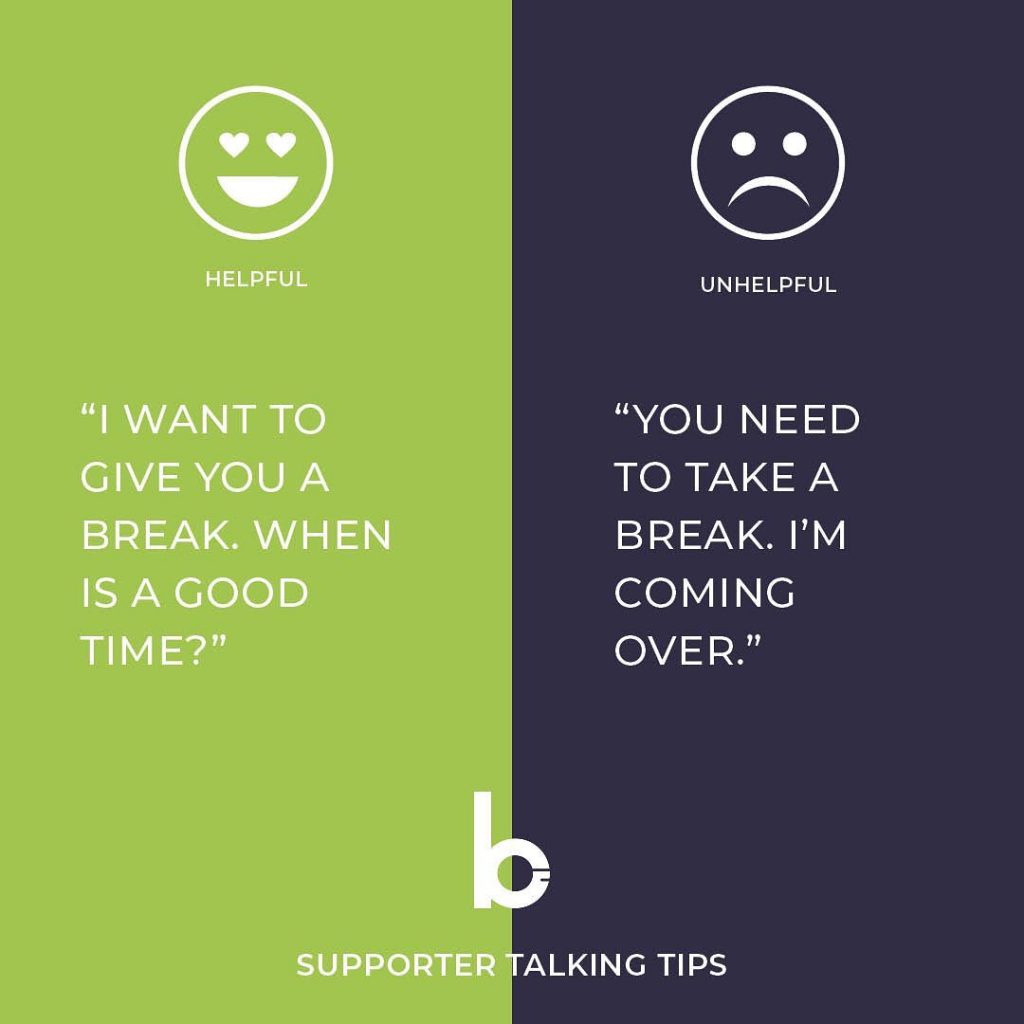
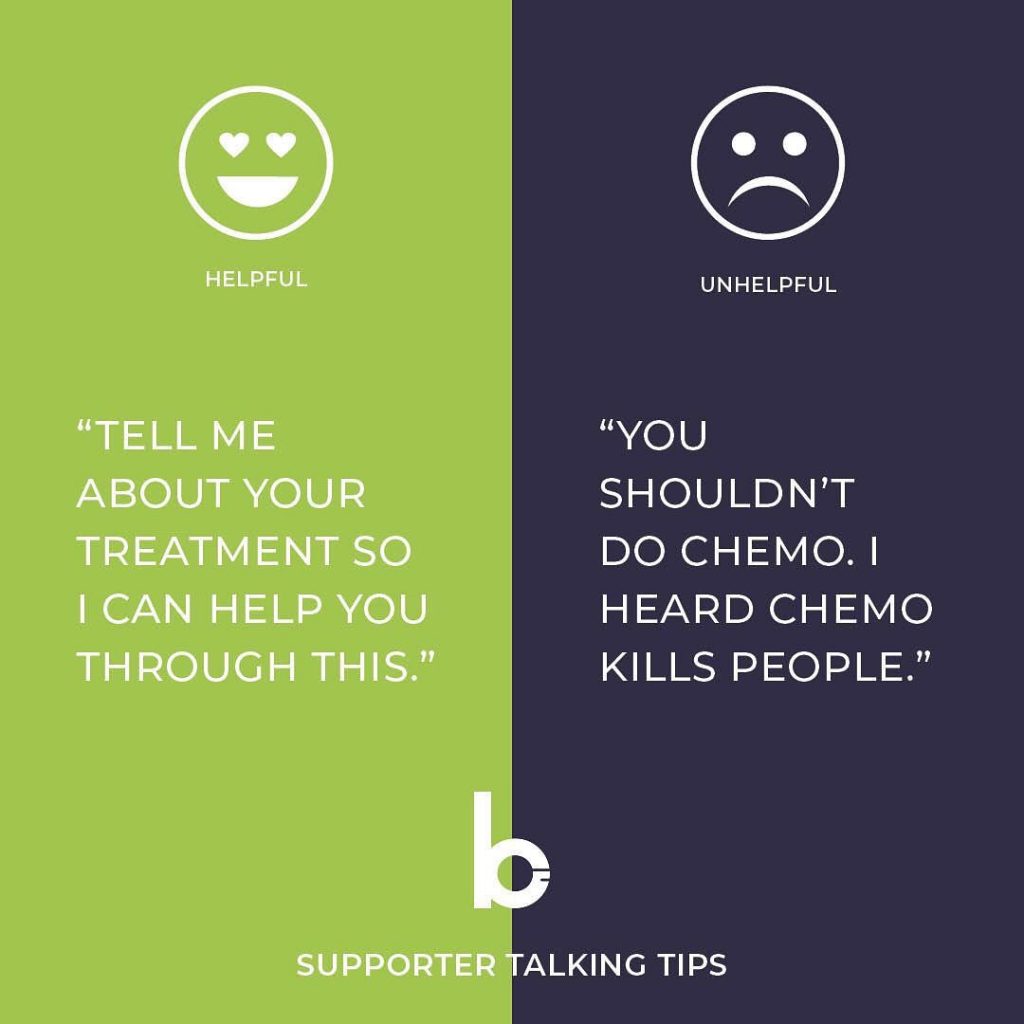
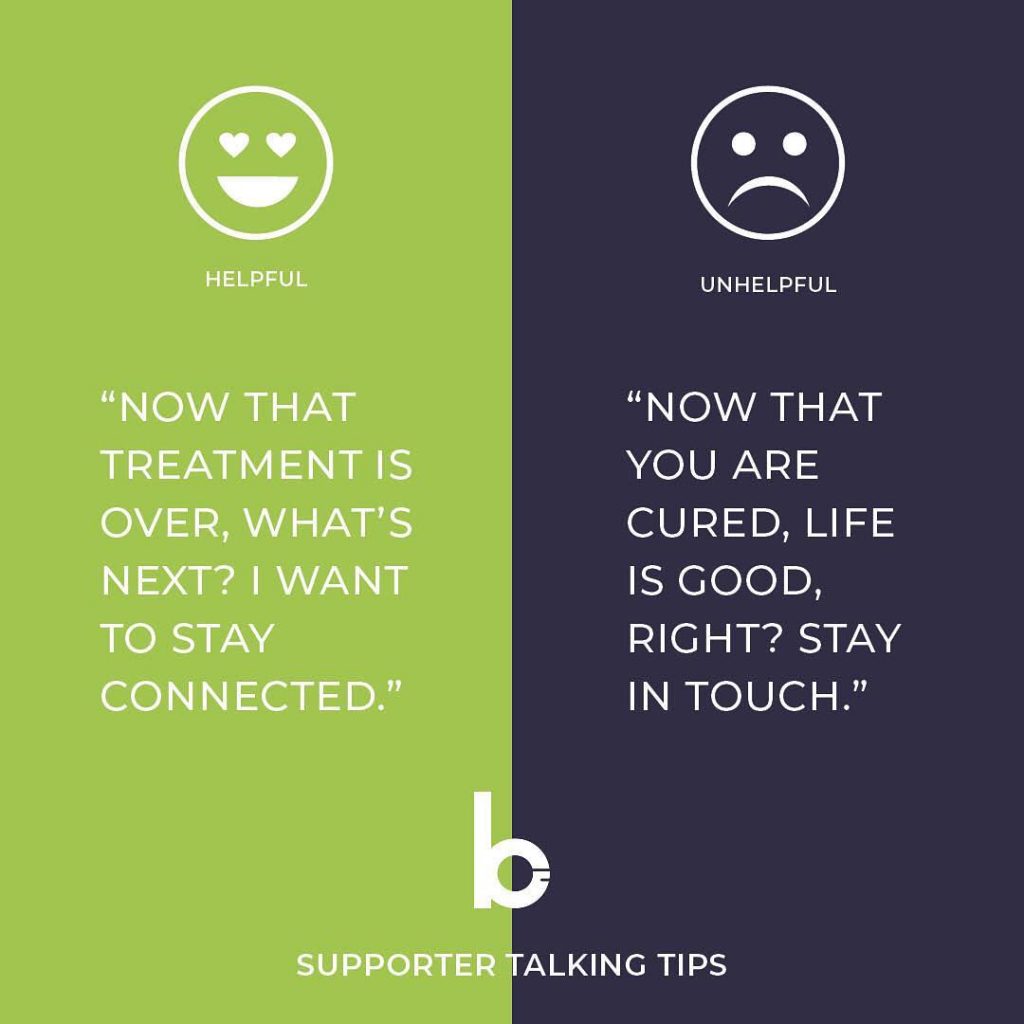
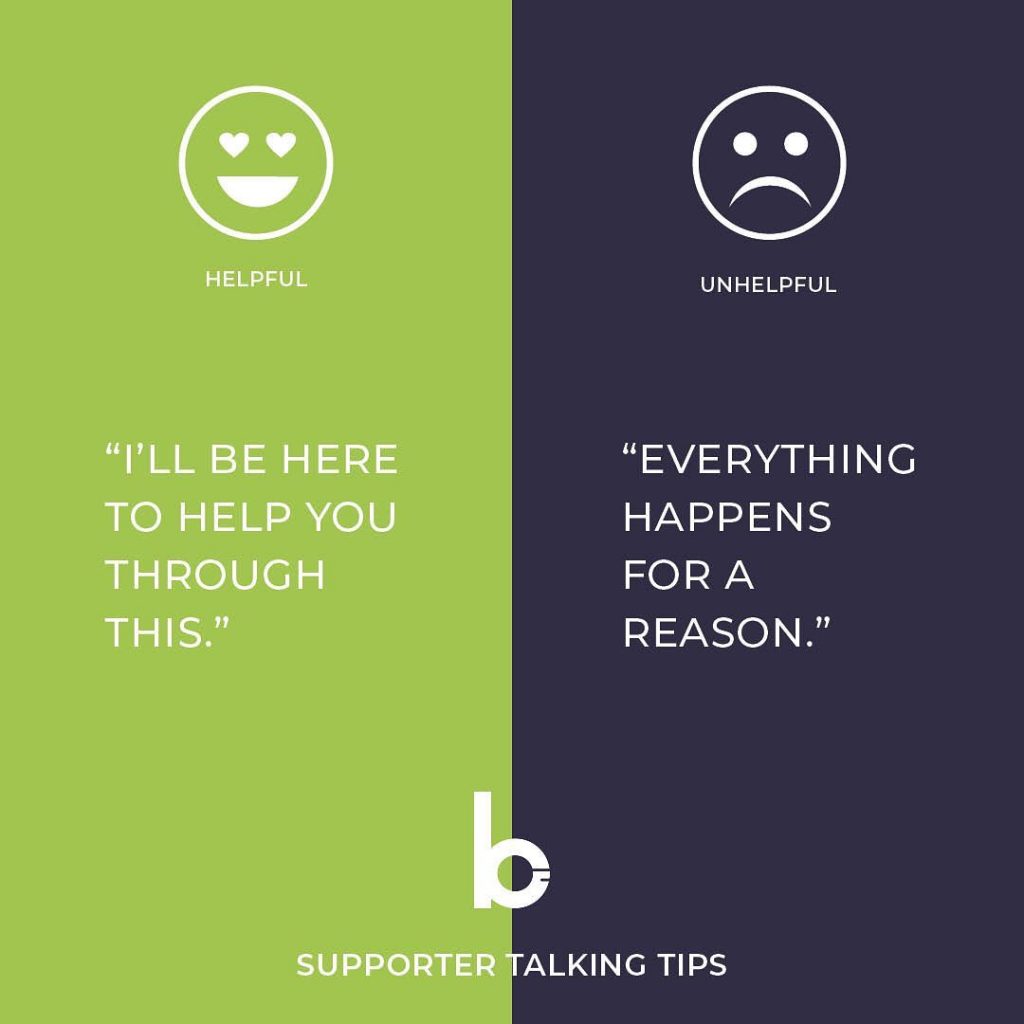
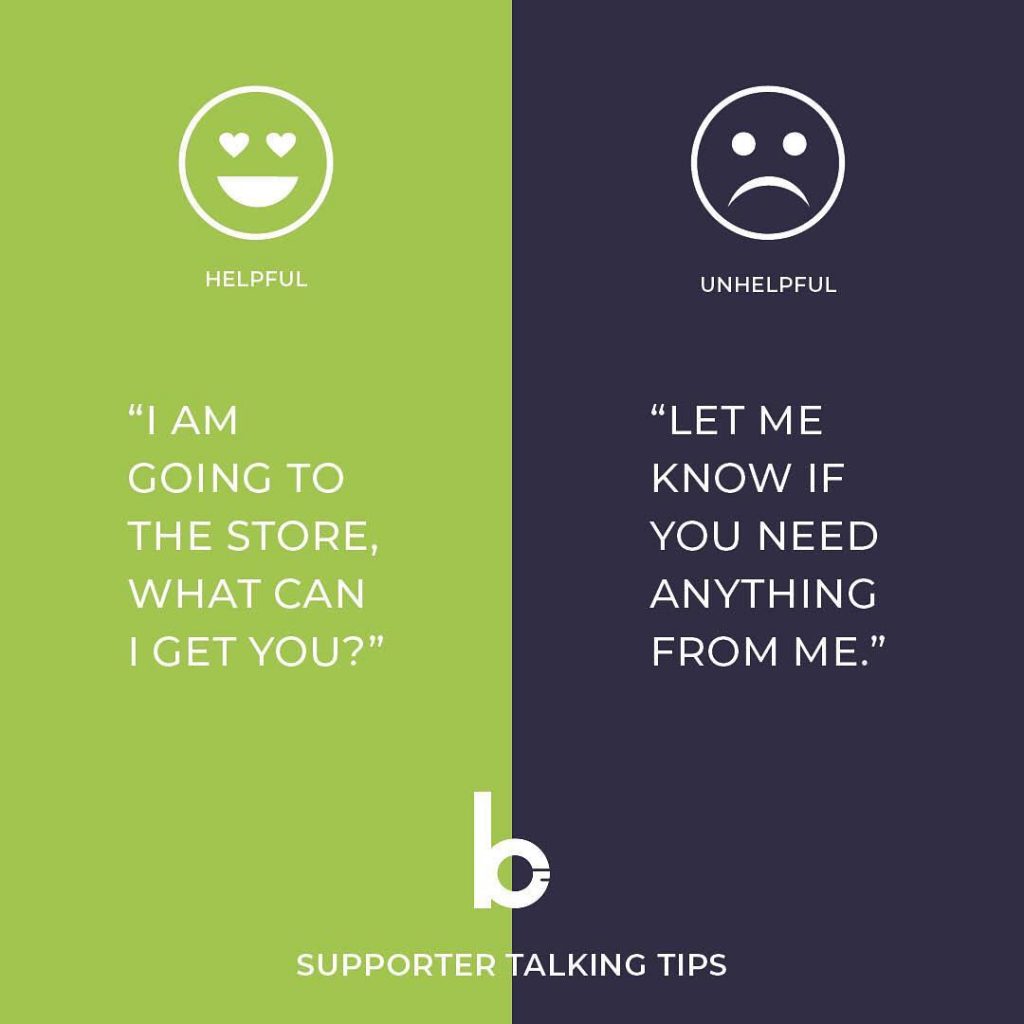
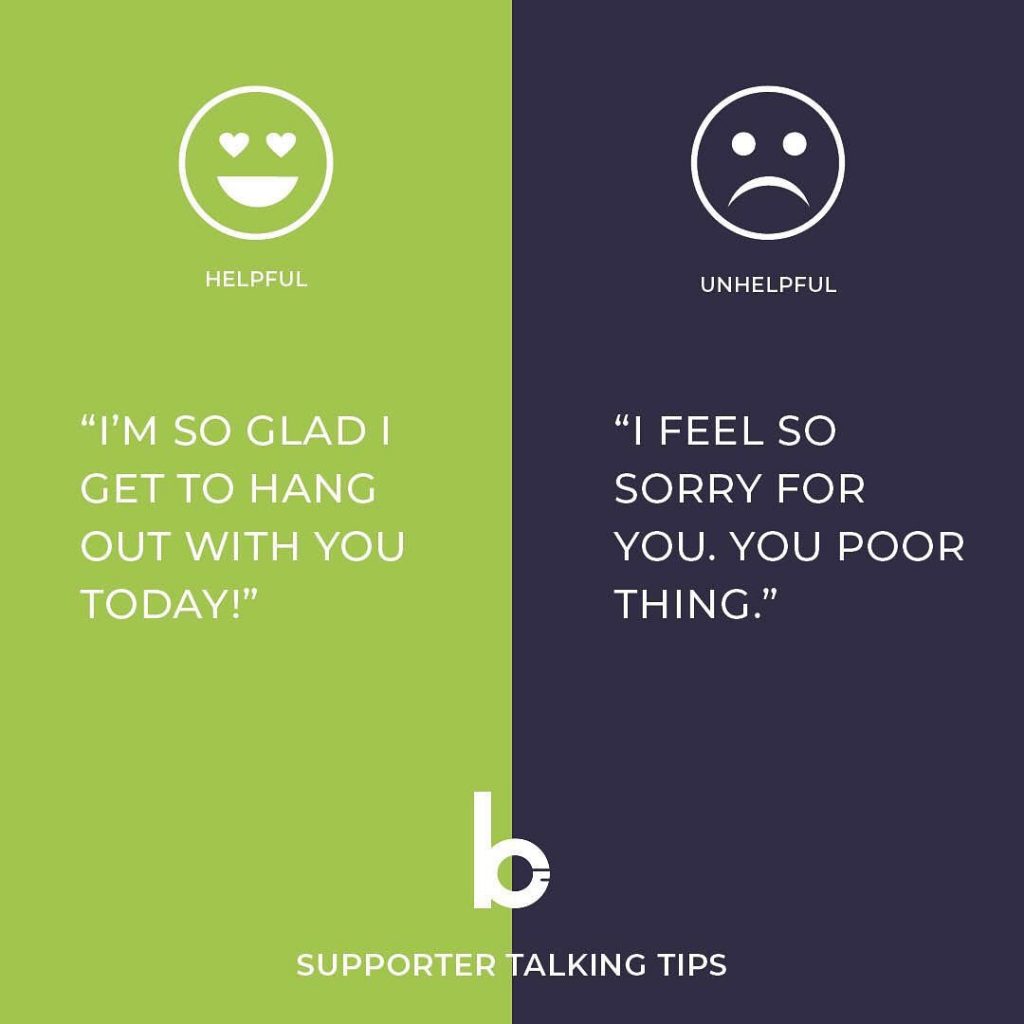
Unhelpful Things to Avoid
Below are some general landmines to look out for. Try to avoid them if possible.
- Part of the Plan
- “Everything happens for a reason.”
- “You are only given what you can handle.”
- False Empathy – I know someone
- “ My ______ had cancer and they died!”
- The One Up / Compare and Contrast
- “My grandpa had cancer and that was much worse. You’ll be fine.”
- Dismissive Comments
- “At least it’s just cancer.”
- “You should feel lucky it’s not stage 5 cancer.”
- Questionable Questions
- “Are you going to die?”
- “Don’t you feel like less of a man/woman now?”
- You did something to deserve this
- “You must have must have done _____ to get cancer.”
- “You probably spent too much time in the sun.”
- “If you changed your eating habits, this might not have happened.”
- You Look Too Good
- “You look good for someone with cancer.”
- Be Positive
- “Cancer is a gift.”
- “You are so positive, you will be fine.”
- Preaching Alternate / Safer Cures / Lifestyles
- “Don’t do ___________ it will kill you.”
- “If you only did ________ it would all go away on its own.”
- Did you really just say that out loud?
- This is the catch-all category of comments that are just so off the wall random, ignorant, or cringeworthy that the recipient is in disbelief or speechless.
Helpful Talking Tips
As you navigate your conversations, remember these talking tips:
- It can feel like you are walking a tightrope sometimes and it is natural to feel unsure about what to say. The fact that you feel uncertain means you care about your friend’s feelings. That’s good.
- Avoid comments that are dismissive of their diagnosis, experience, how they are feeling, or their choices, and only offer advice when asked.
- Be present and aware of their physical and emotional state.
- It’s about being mindful of how you say something, not over-filtering what you say.
- If you have ever said any comments that fall into one of the themes above, it is never too late to apologize. Words like: “I just realized when I said _________ I was insensitive to your feelings/situation. I apologize and hope you will forgive me.”
- If you mess up, own it. Be humble. Apologize. Learn from it. Move forward.
We are stronger together, and better when we can learn from each other. Want to share your experience (anonymous if desired) to help others? We’re all ears and we’d love to share your cancer Talking Tip with our community.

